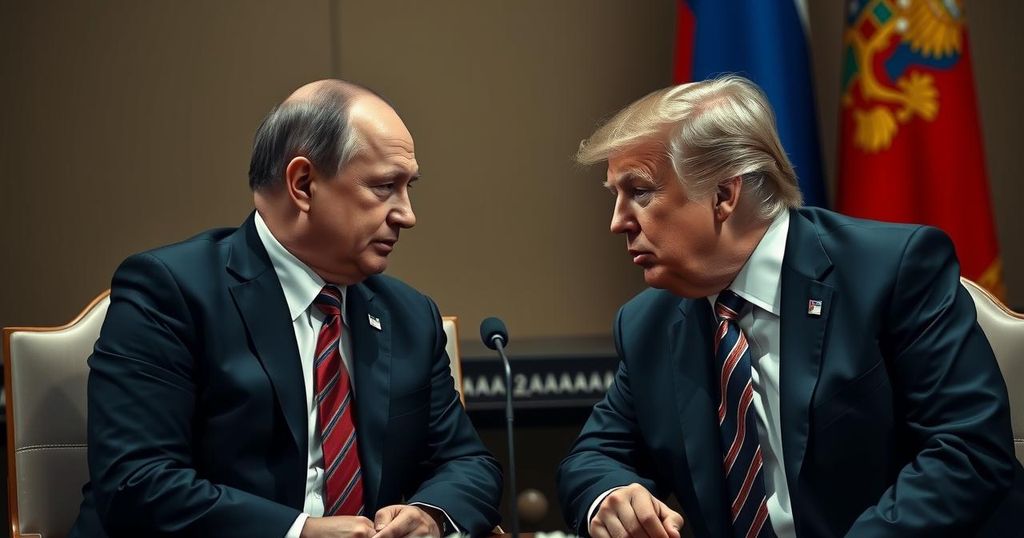Putin’s Manipulative Tactics Following Trump’s Victory

Following Donald Trump’s electoral victory, Vladimir Putin employed tactics that suggest he is manipulating the President-elect. Putin’s delayed congratulations and claims from Russian officials imply that Trump owes obligations to certain forces connected to his electoral success. This raises concerns about potential psychological manipulation and the impact of Russian disinformation campaigns on U.S. democracy, highlighting the complicated nature of U.S.-Russia relations as Trump assumes office.
In the immediate aftermath of Donald Trump’s electoral victory, Russian President Vladimir Putin initiated a series of actions that suggest manipulation of the President-elect. Initially, Putin delayed his congratulations for two days, leading Trump to question when he would receive a call from the man he has repeatedly admired. Furthermore, in response to Trump’s assertion that he had cautioned Putin against escalating the conflict in Ukraine during their phone call, Kremlin spokespersons refuted the occurrence of such a discussion altogether. This response could leave Trump in a precarious position should military actions escalate, as Putin may dismiss any alleged prior conversations. More disconcerting was the statement made by Nikolai Patrushev, head of Russia’s intelligence services. He claimed that Trump had obligations to some forces that aided his electoral campaign, signaling a potentially dire manipulation wherein Russia implies a form of blackmail. This indicates a deep level of psychological warfare aimed at undermining Trump’s position and loyalty. The ongoing concerns regarding Russian interference in U.S. elections include disinformation campaigns targeting voters, particularly against Democratic candidates. While there has been no evidence to suggest Trump’s personal involvement in these activities, such insinuations by Russian officials could suggest a strategy meant to erode trust in American democratic processes. Trump has historically shown a desire for closer ties with Russia and has expressed skepticism towards U.S. intelligence regarding Russian interference. His foreign policy has often favored realignment with Russia over traditional alliances, raising questions about how he might respond to the pressures and tactics employed by Putin. The recent statements by Russian officials may compel Trump to reconsider his views, particularly if he continues to confront the reality of international relations that transcend personal admiration.
The article discusses the potential manipulation of Donald Trump by Vladimir Putin following Trump’s electoral victory. It highlights the context of U.S.-Russia relations, especially the complexities surrounding Trump’s admiration for Putin, and the implications of Russian interference in American politics. This examination is set against the backdrop of previous Russian tactics aimed at undermining U.S. democratic processes and how such strategies could play a role in shaping Trump’s presidency.
In conclusion, the apparent psychological manipulation of Donald Trump by Vladimir Putin underscores a significant concern regarding U.S. national interests and foreign relations. As Trump navigates his presidency amid these complex dynamics, it is essential for him to recognize the limitations of personal relationships in politics, especially when confronted with the stark realities of international engagement. Ultimately, Putin’s actions reveal a strategic effort to influence and undermine the integrity of U.S. governance.
Original Source: slate.com








